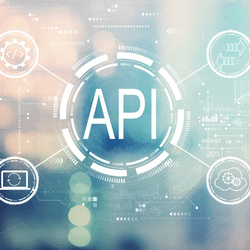
The Sports data revolution is no longer news, therefore real-time is driving the next wave of data-driven innovations. Streaming APIs have exploded as a result of the growth of 'continuous' in-play betting. Many sports data services exist where fans may interact, compete, and discuss in real-time around pre-determined in-game events, such as a pass, a foul, a change in weather, or pitch condition. Data is used in sports analysis to raise income, improve player development and a team's quality of play, reduce injury, and many other improvements in the sports sector. Many organizations are creating entire departments only to study data in an attempt to become the greatest program in the league, therefore sports analysts are in high demand. To put it another way, sports clubs use analytics to gain a competitive advantage. In the future, various new advancements are predicted to emerge as technology advances.
Engineers must design and manage systems that send data on thousands of micro-moments, such as dynamic updates on the play, wagering options, user behavior, and other information, in order to evaluate live sports data feed. Millions of messages necessitate countless data-transfer channels, all operating at the same time, with no way of knowing which channel or message will be important to whom and how many at any one time. Many people in sports data services, including coaches, managers, agents, scouts, marketing experts, medical personnel, and the analytics team, benefit from the data. Sports analysts may use the current technology to analyze data and generate meaningful yet easy visuals to share with other important decision-makers on a team. Integrating data sources to promote competitiveness, articulating why the data is valuable, and generating a distinct fan experience are some of the other developments made possible by data analysis.
 Infrastructure requirements for real-time streaming APIs include a lot of stipulations. Data must be given to end-users in under half a second and smoothly synced across users' many devices in sports betting, where competition is high and customers risk losing money, otherwise sports fans would just switch applications at the first indication of trouble. While competition is stiff and customer expectations are high, there are substantial benefits to seizing this opportunity. By definition, live data feeds from sporting events draw enormous crowds. More income streams result from easy access to these APIs, as partner firms enhance live fan experiences.
Infrastructure requirements for real-time streaming APIs include a lot of stipulations. Data must be given to end-users in under half a second and smoothly synced across users' many devices in sports betting, where competition is high and customers risk losing money, otherwise sports fans would just switch applications at the first indication of trouble. While competition is stiff and customer expectations are high, there are substantial benefits to seizing this opportunity. By definition, live data feeds from sporting events draw enormous crowds. More income streams result from easy access to these APIs, as partner firms enhance live fan experiences.
Wearable technology is another data collection resource that may be utilized for a variety of purposes. A lot of players, for example, have data-gathering gadgets in their helmets to assist them to avoid injury. Many clubs and leagues are starting to use wearable technology to aid with injury prevention and player performance. Increasing technological resources are prompting more leagues to examine the best analytics resources in order to gain the competitive edge that clubs want. It all boils down to effectively communicating live sport data feed in sports analytics. Sports analytics is a burgeoning area as technology and resources for data collecting advance, as teams seek a competitive advantage over their opponents. In today's technologically advanced world, it only makes sense to employ data and sports analytics as a tool to help sports teams reach new heights.
Live sport data providers must collaborate with authorities and anti-corruption activists to develop centralized systems that make official data quick, trustworthy, and robust enough to eliminate the need for illegal or offshore data providers. If sport live score data systems are to accommodate the combined demands of connected spectators, competing for UX environments, and the necessity for watertight official scores, they will need to undergo a technical overhaul. Real-time API administration solutions make many streaming connections much easier to manage and aggregate, much as API management tools made it possible for corporations to communicate and share data outside their organizations. Avoiding middlemen, avoiding congestion, and looking at licensing arrangements that allow data to be transferred straight from the source to the end-user without compromising existing commercial agreements are the ways of the future for sports data. Closed systems with guaranteed capacity and availability as well as using the shortest possible transfer route is what is required.
must collaborate with authorities and anti-corruption activists to develop centralized systems that make official data quick, trustworthy, and robust enough to eliminate the need for illegal or offshore data providers. If sport live score data systems are to accommodate the combined demands of connected spectators, competing for UX environments, and the necessity for watertight official scores, they will need to undergo a technical overhaul. Real-time API administration solutions make many streaming connections much easier to manage and aggregate, much as API management tools made it possible for corporations to communicate and share data outside their organizations. Avoiding middlemen, avoiding congestion, and looking at licensing arrangements that allow data to be transferred straight from the source to the end-user without compromising existing commercial agreements are the ways of the future for sports data. Closed systems with guaranteed capacity and availability as well as using the shortest possible transfer route is what is required.
Data Sports Group delivers a reputable and trustworthy sports API for data from a variety of competitions throughout the world. Their data plans are great for small and big enterprises. Score updates, rankings, pre-match statistics, and data are available for a number of leagues. Data Sports Group designed a fundamental and logical structure to make the business experience smoother. They offer a big content repository that includes data and statistics from over 5000 competitions and spans 50 sports. The platform allows you to give 360° coverage to your audience from events and major tournaments by utilizing in-depth data and figures provided by experienced data analysts.










